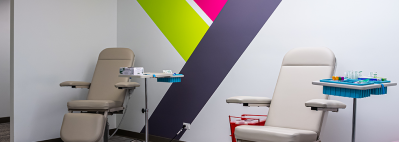Promotional Features
Exploring the latest trends in clinical trials: A glimpse into the future
Randomized control trials are the gold standard of evidence for the scientific substantiation of claims by many regulatory bodies such as The European Food Safety Authority (EFSA) and the Food and Drug Administration (FDA).
In recent years this type of study has become a key trending favorite. These types of studies are designed to test the ‘superiority’ to decide if one is better than the other, ‘non-inferiority’ to decide if one is not worse than the other or ‘equivalence’ to decide whether one cannot be differentiated from the other among other study designs.
This type of trial involves randomly assigning participants to two or more groups (an experimental group and a control group) and comparing the outcomes of the groups to determine the effectiveness of a treatment or intervention. It can add medical knowledge and provide effectiveness of intervention for disease prevention.
However, optimal design does not always require a randomized, double blind, placebo-controlled trial. In fact, many types of clinical trials can yield scientifically valid results, such as parallel, crossover studies. One size does not fit all when it comes to clinical research. Clinical research bodies such as Atlantia are offering a unique, personalized approach when it comes to each individual study.
Atlantia Clinical Trials offers a complete end to end clinical solution, all the way from the protocol’s development, whereby you put together the main aims of the study by defining the objective, through to the final report and marketing outreach.
With over 10 years of experience, Atlantia has facilitated over 160 clinical studies with sponsors across the globe and across multiple health areas, many of which have been published in peer-reviewed and high impact journals. Atlantia offers a multitude of study types for its sponsors and will advise each sponsor on a unique individual basis.
The type of study needs to align with the type of treatment product area that is being studied. All types of trials can yield valuable scientific evidence when used appropriately to test various hypotheses or observe various food or drug effects in humans. Atlantia is also catering to a need for studies conducted in the pharmaceutical and medical device space, expanding from the traditional nutraceutical client base. Atlantia also facilitates safety phase 1a pharma studies, class 1 and 2a medical device studies.
Hybrid/virtual study models: A game changer in clinical research
Alongside this, another trend can be seen in the conduction of clinical trials. Traditional clinical trials have long been associated with substantial time and cost burdens, often posing challenges for both participants and healthcare professionals. However, on site visits to clinic sites allow for the collection of real clinical samples. It allows for a patient centric approach whereby volunteers visit the clinic multiple times throughout the duration of the study. This collection ensures the study is subjective data based.
The emergence of more hybrid/virtual clinical trials is poised to revolutionize the clinical research industry, offering a solution to many of the issues caused by conventional trials. These types of trials can incorporate digital health technologies (DHTs), which capture healthcare data directly from individuals. By leveraging remote monitoring and mobile technologies it can enhance patient convenience and streamline trial efficiency.
Atlantia offers hybrid study models for its sponsors. Alongside this, Atlantia has multicentre and multinational capabilities, operating out of two clinic sites in Ireland and the US. The benefits of these new types of models are manifold, including increased patient recruitment, reduced patient burden, improved retention rates, simplified trial protocols, and enhanced diversity in patient inclusion.
Wearable technology: A promising frontier in healthcare
With the incorporation of more of a hybrid service model comes the utilization of more technology in clinical trials. Wearable devices have emerged as powerful tools for data collection in real-world settings, offering continuous monitoring of vital health metrics as individuals go about their daily lives. These devices can take various forms, from wristwatches and skin patches to garments, and serve a multitude of purposes, including glucose monitoring, sleep tracking, and heart function assessment.
One key advantage of wearables is their ability to facilitate remote patient enrolment, consent, and participation in clinical trials through the integration of smartphone apps and web-based interfaces. By making the trial process more convenient and accessible, wearables enable researchers to reach remote patients effectively. This has allowed for the continuous monitoring of data in trials.
Atlantia has incorporated various pieces of technology in its trials. The company has developed a suite of apps for collecting and monitoring clinical data offsite. These allow for the capturing of remote participant data on a daily basis, driving compliance and adherence to study protocols. The use of medical devices has also propelled the transition of trials from clinic to the home, as clinical data can be collected at the subject’s home on a continuous basis.
With this, wearable technology is advancing rapidly, with continuous improvements in monitoring capabilities, data transmission, and real-time communication. While the maturity and quality of these devices vary, they hold the potential to become integral components of future healthcare and research development.
The evolution of the clinical research industry
As the clinical research industry evolves, it's imperative to stay abreast of the latest trends and innovations. Different design types, hybrid/virtual models and wearable technology are reshaping the landscape of clinical research, bringing us closer to more efficient, patient-centric, and data-driven approaches to developing life-saving therapies. The future of clinical trials is indeed exciting, as these trends promise to expedite the journey from discovery to healthcare delivery.





